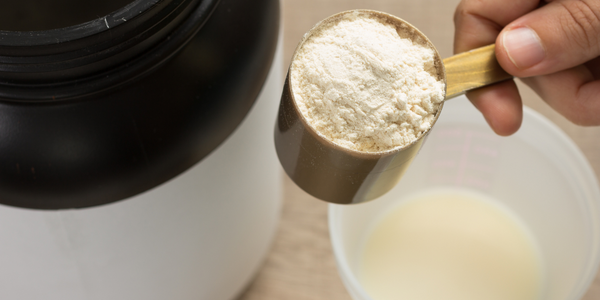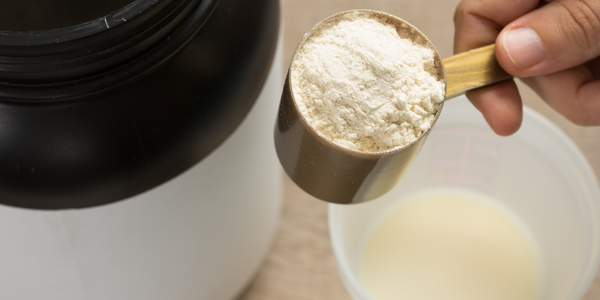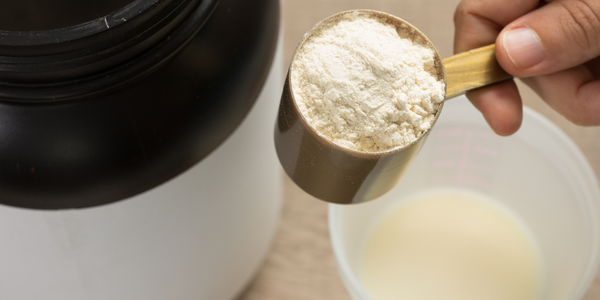Choosing the Right Creatine: Monohydrate vs. Other Forms
When it comes to creatine supplements, one question dominates fitness discussions: creatine monohydrate vs. other forms of creatine—which form of creatine is best? Creatine, a naturally occurring compound, plays a crucial role in energy production, making it a popular choice among athletes and fitness enthusiasts. This blog delves into the different types of creatine to help you decide the best option for your fitness goals.
Creatine and Its Role in Fitness
Creatine is a compound naturally found in small amounts in foods like meat and fish and is also synthesized in the body. It is stored in muscles as phosphocreatine, where it supports the production of ATP (adenosine triphosphate), the primary energy currency of cells. This function makes creatine vital for high-intensity, short-duration activities like weightlifting and sprinting.
For decades, creatine has been one of the most researched and widely used sports supplements, proven to enhance muscle performance, strength, and recovery. Its ability to increase energy availability during workouts has made it a staple for athletes looking to optimize their training results.
Knowing More About Different Forms of Creatine
Creatine Monohydrate
Creatine monohydrate is the most popular and scientifically studied form of creatine. Its structure consists of creatine bound to a single water molecule. This simplicity ensures high bioavailability, meaning the body can efficiently absorb and use it.
Benefits
-
Proven Effectiveness: Decades of research confirm its ability to improve strength, muscle mass, and exercise performance.
-
Affordability: It is cost-effective, making it accessible to fitness enthusiasts on a budget.
-
High Bioavailability: It’s easily absorbed and utilized by the body.
-
Ease of Use: Available in powder and capsule forms, it can be mixed with water or other beverages.
Creatine Monohydrate + HCl (Hydrochloride)
Creatine Monohydrate + HCl is another popular form, created by binding creatine to hydrochloric acid. It is known for its improved solubility, which may enhance absorption.
Benefits
-
Smaller Doses: Due to its higher solubility, smaller doses are often required compared to monohydrate.
-
Reduced Bloating: Many users report fewer digestive issues, such as bloating or water retention.
-
Convenience: Its concentrated nature makes it easier to carry and consume.
Other Forms of Creatine
While creatine monohydrate and creatine monohydrate + HCl dominate the market, several other forms claim unique benefits. Here’s how they compare:
Creatine Ethyl Ester
This form is chemically modified to enhance its absorption. However, studies suggest it might not be as effective as monohydrate in increasing muscle creatine levels.
Pros:
-
Claims of faster absorption.
Cons:
-
Limited research backing its effectiveness.
Buffered Creatine
Buffered creatine is designed to have a higher pH level to prevent breakdown in the stomach and improve stability.
Pros:
-
May reduce stomach discomfort.
Cons:
-
Insufficient evidence showing superior performance over creatine monohydrate.
Liquid Creatine
This pre-dissolved form is marketed as more convenient. However, creatine’s stability in liquid form is questionable, leading to potential degradation before consumption.
Pros:
-
Ready-to-drink format.
Cons:
-
Lower stability compared to powder forms.
Creatine Magnesium Chelate
This form binds creatine to magnesium, claiming to enhance absorption and provide additional benefits like improved muscle relaxation.
Pros:
-
Potential dual benefits of magnesium and creatine.
Cons:
-
Limited research on its effectiveness compared to monohydrate.
How to Choose the Right One
The question of which form of creatine is best depends on several factors, including your fitness goals, budget, and tolerance to supplements. Here are some tips to guide your choice:
Define Your Fitness Goals
-
If you’re looking for proven results in strength, muscle gain, and performance, stick to creatine monohydrate.
-
For those seeking improved strength & stamina, cognitive health support, and enhanced muscle cell volume creatine monohydrate + HCl might be worth trying.
Seek Professional Advice
-
Always consult a nutritionist or fitness expert before adding new supplements to your regimen. They can provide personalized recommendations based on your individual needs and health status.
Remember, when it comes to the debate of creatine monohydrate vs creatine, research overwhelmingly supports the effectiveness of creatine monohydrate as the gold standard. It’s affordable, reliable, and backed by decades of studies. While other forms like buffered creatine offer potential benefits, they often come at a higher cost with less robust evidence.
Ultimately, the best creatine for you depends on your goals, preferences, and how your body responds. By understanding the unique features of each type, you can make an informed choice to maximize your fitness results.



























 DOWNLOAD NOW
DOWNLOAD NOW
